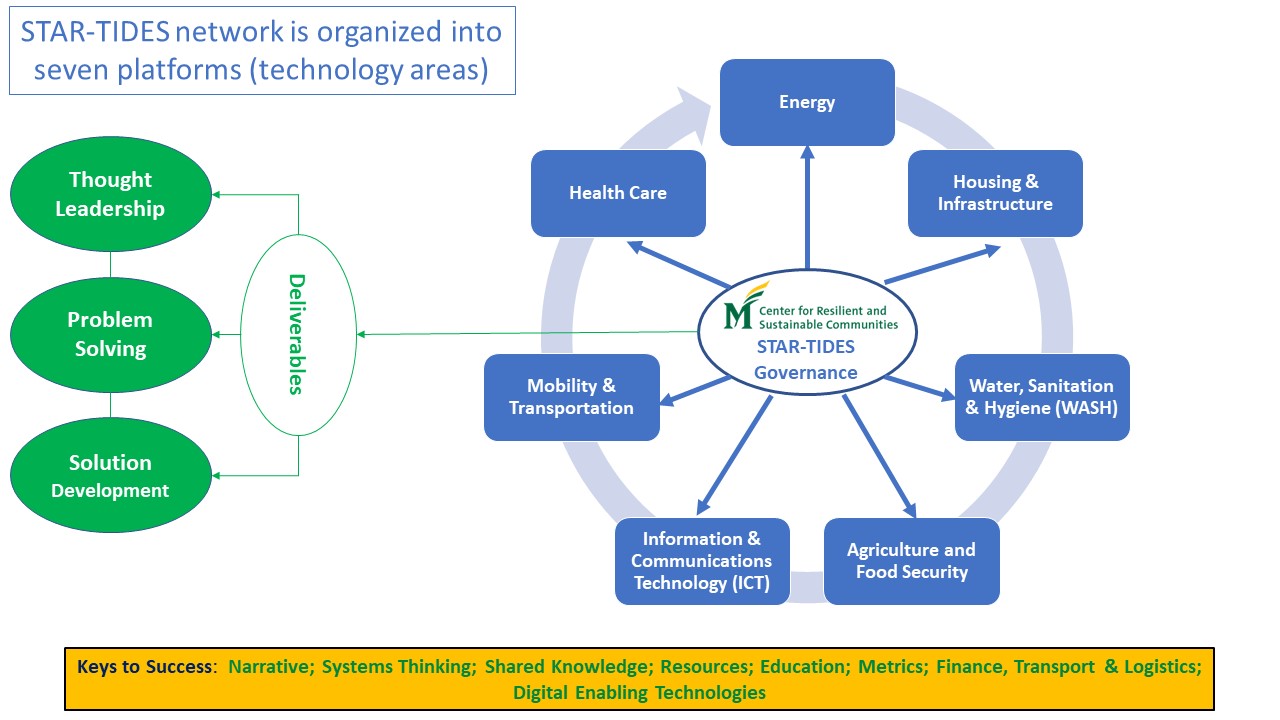The knowledge in the STAR-TIDES network is organized into seven platforms (technology areas) as shown in the wheel below.
STAR-TIDES platforms (technologies) are supported by the “keys to success” shown below
-
- Narrative (and Story Telling) are essential parts of the “Listening” and “Learning” phases of a project, both to understand community needs in their cultural context and to translate technical analyses into terms that support their engagement.
- Systems Thinking is needed to link the various platforms together in ways that support the community’s needs, and then narrative comes back into play to convey the technical analysis back to the community in ways that are consistent with their needs, cultures, and resources.
- Global Knowledge Sharing is facilitated by the STAR-TIDES network.
- All projects need Resource-Raising Strategies.
- Education also is a key part of bi-directional learning, and developing modes that can be extended to other circumstances
- Finance, Transport, and Logistics provide the glue to stand-up and execute real world efforts, and is a core part of “Lasting.”
- Digital Enabling Technologies include geospatial information systems (GIS), identity management, distributed ledger technology (like blockchain) for accountability and transparency, climate science, big data analytics, etc.
STAR-TIDES is coordinated through GMU’s Center for Resilient and Sustainable Communities (C-RASC). Although C-RASC has a broad overall focus, each C-RASC project will have a specific name, such as “Appalachia Advancing,” and emphasizes the interests of the community in question. This allows the global knowledge-sharing of the STAR-TIDES network to be focused on individual projects.

